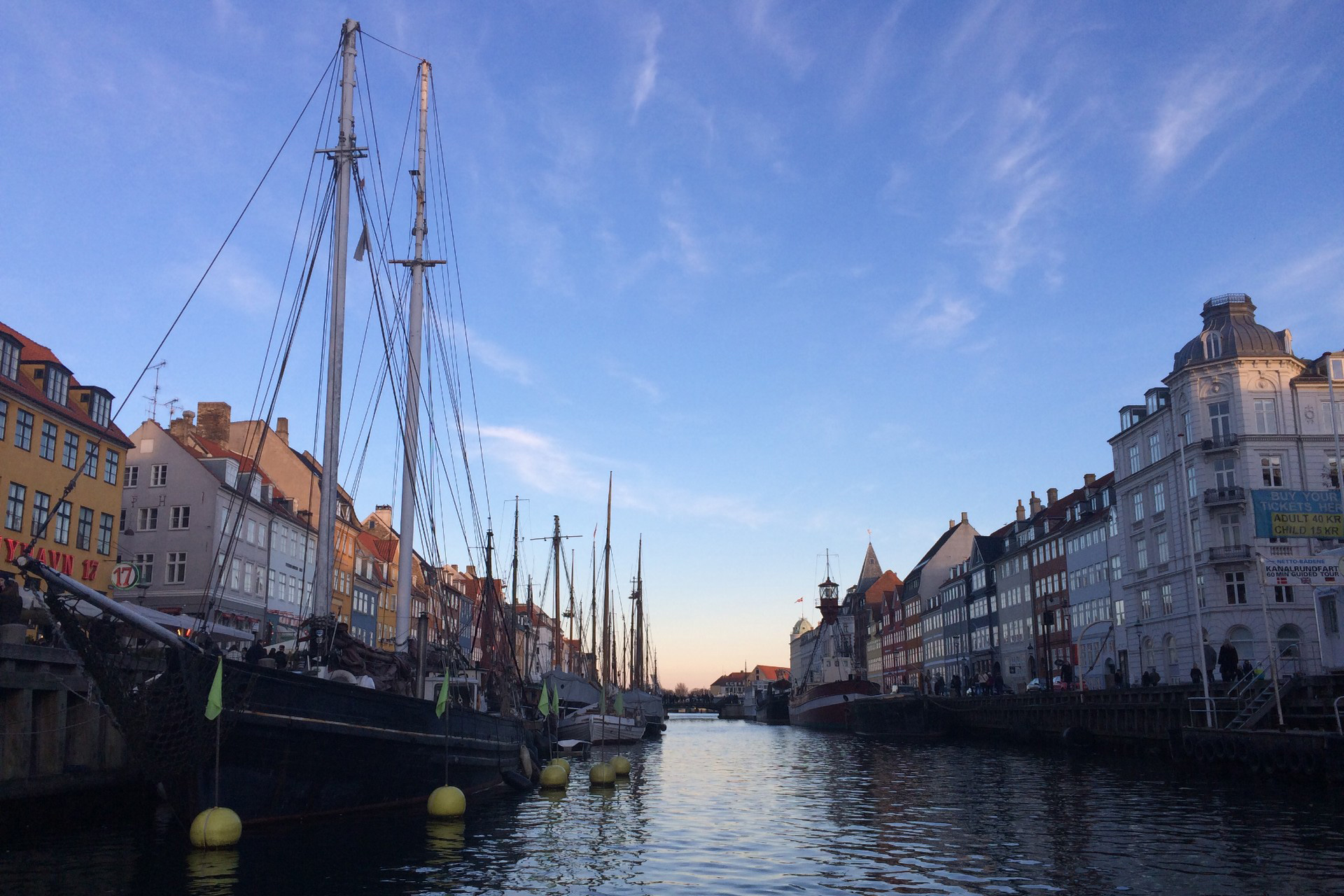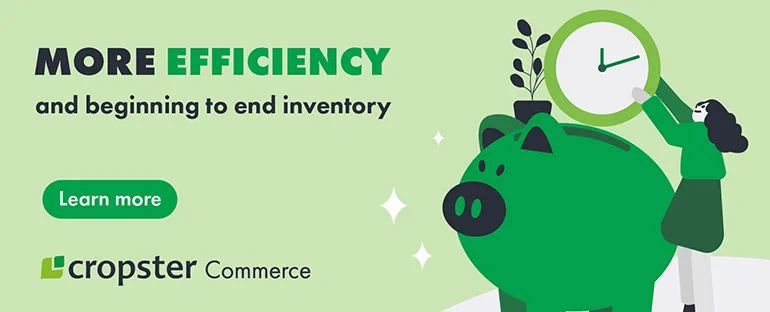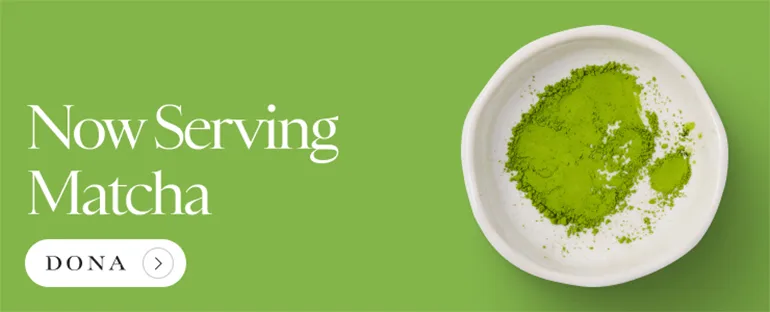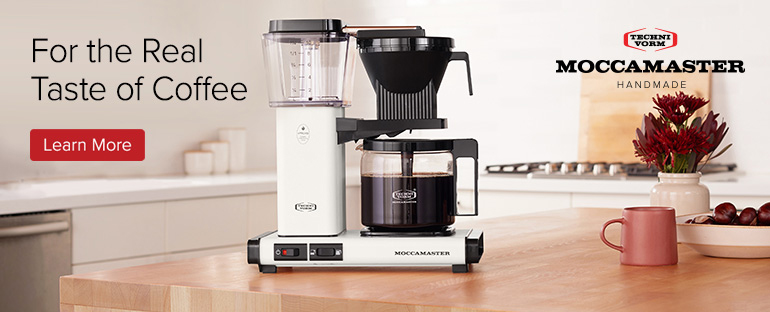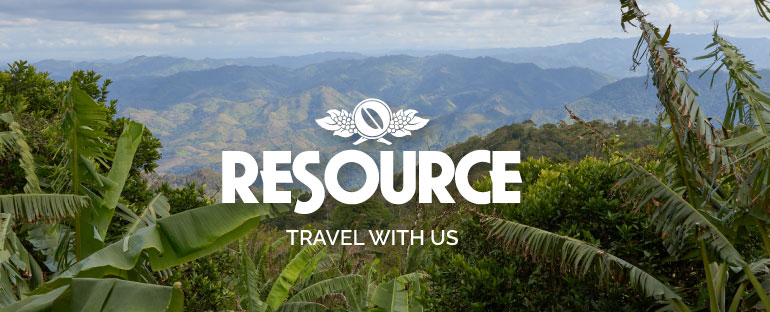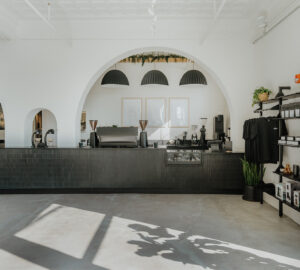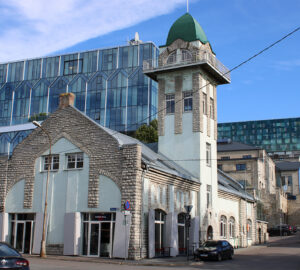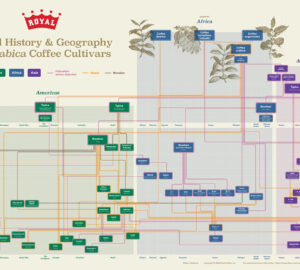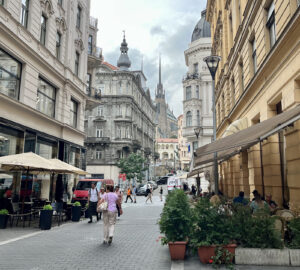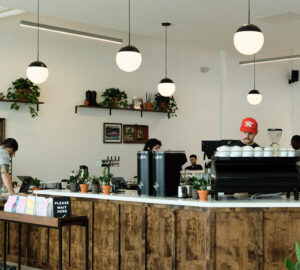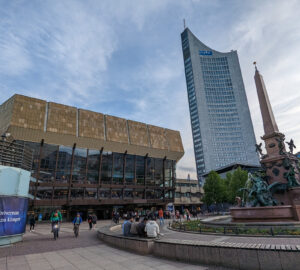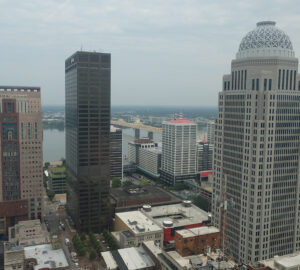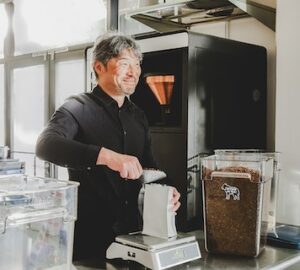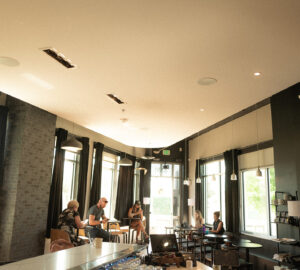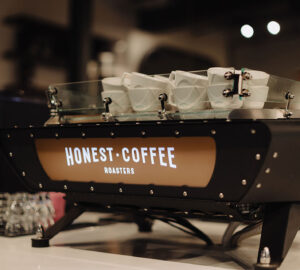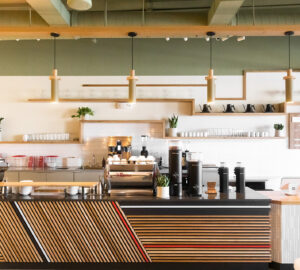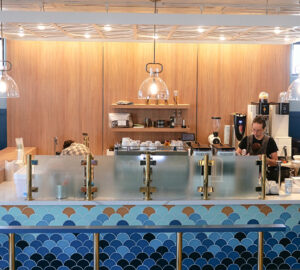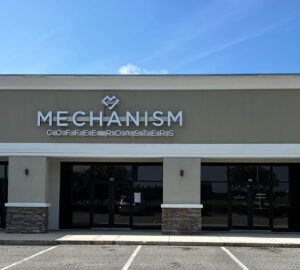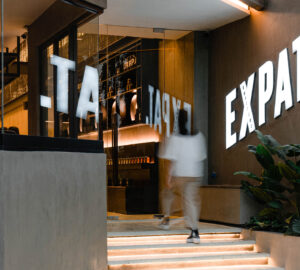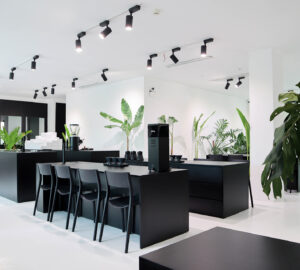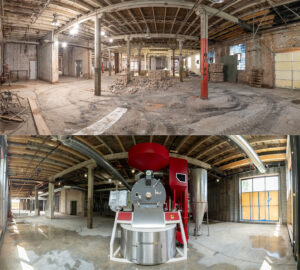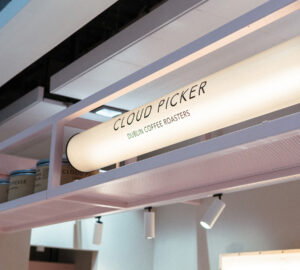The Danish capital Copenhagen, which some call “Northern Europe’s coziest capital,” is lauded as a model of urban sustainability. Anticipated to be the first carbon-neutral city by 2025, the City of Spires is home to 15 Michelin Star restaurants, a historic center loaded with castles and palaces, and the picturesque Nyhavn waterfront (pictured above).
In a country where you’ll often hear, “There’s no such thing as bad weather, only bad clothing,” you’ll find Copenhageners sipping coffee outside rain or shine. It makes sense, then, that locals see coffee breaks as a cultural necessity to summon that “cozy” feeling year-round, and why Denmark remains as one of the top-five coffee consuming countries per capita on the planet.
This is *not* Sprudge’s first visit to Copenhagen for great coffee. Our first Copenhagen Coffee Guide came out in 2018, and it remains a helpful reference to drinking great coffee across the city. Today the Copenhagen coffee scene burgeons with the same expectations of quality as its world-renowned New Nordic cuisine and natural wine. We’ll explore emerging cafes serving the capital’s metropolitan population of nearly 1.4 million with the help of local and international roasters, and highlight community-focused shops that represent the city’s eclectic and global, yet sensible, nature.
You’ll be able to enjoy your java in harbor-side coffee bars, in the presence of iconic Danish design, and under mosaic pendant lamps from Jordan, watching locals whizz by on bikes all the while. Shall we pedal right on?
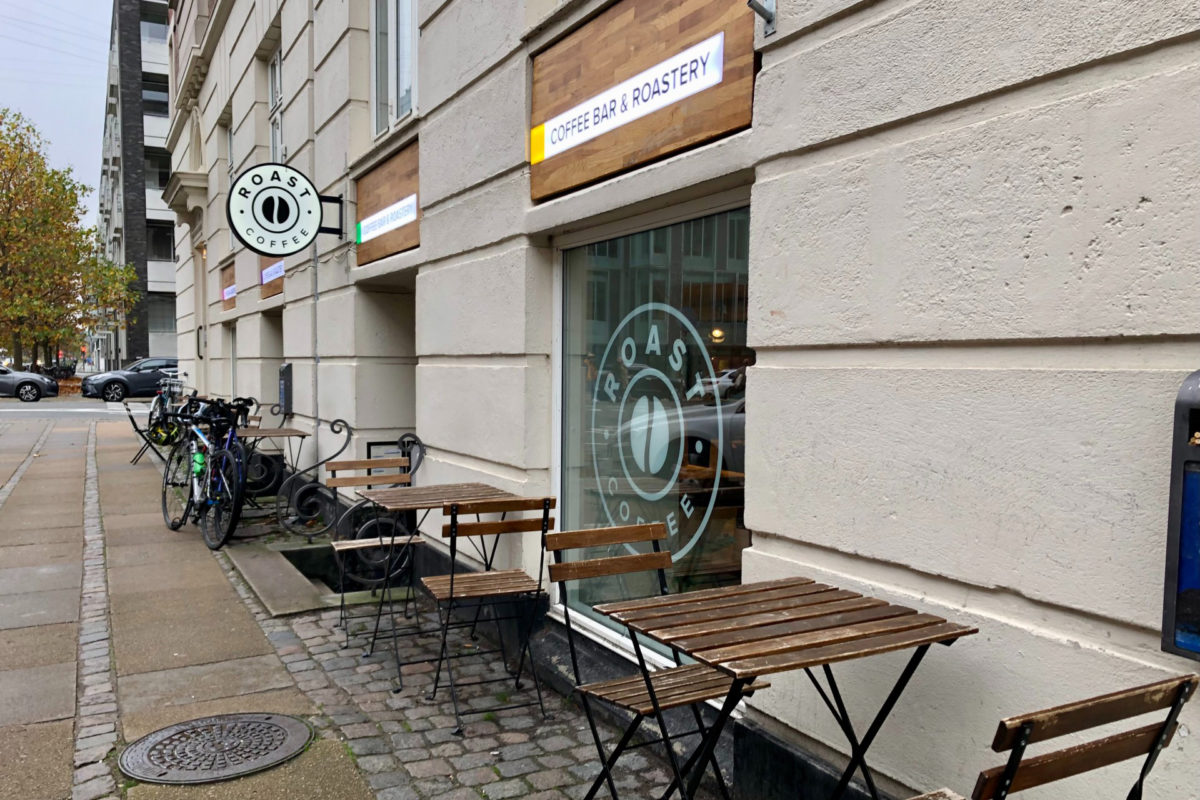
ROAST Coffee
As I approach the ROAST Coffee near Islands Brygge, there’s a group of three Danes sitting outside in the fog with winter coats and characteristically bare heads. I soon find that the coffee is so good that if there weren’t seats inside, I’d do the same. Trek over Copenhagen harbor onto Amager Island and you’ll, too, encounter this narrow coffee bar and roastery that’s much more than meets the eye.
Founded in 2015, ROAST boasts an impressive (8+) lineup of coffees roasted in-house, including a number of specialty dark roasts, any of which you can watch the baristas brew on pour-over. I opt for the Ethiopia Adado (black tea, peach, rose) and Kenya Kiangundo (blackcurrant, orange, chamomile); both make this rainy Sunday more vibrant than before.
ROAST coffees are purchased through the Cup of Excellence program and bear a “50-50” label that guarantees farmers 50% of the retail price after tax. With this philosophy, the team aims to go “Beyond Fair Trade” and put higher emphasis on quality and sustainability.
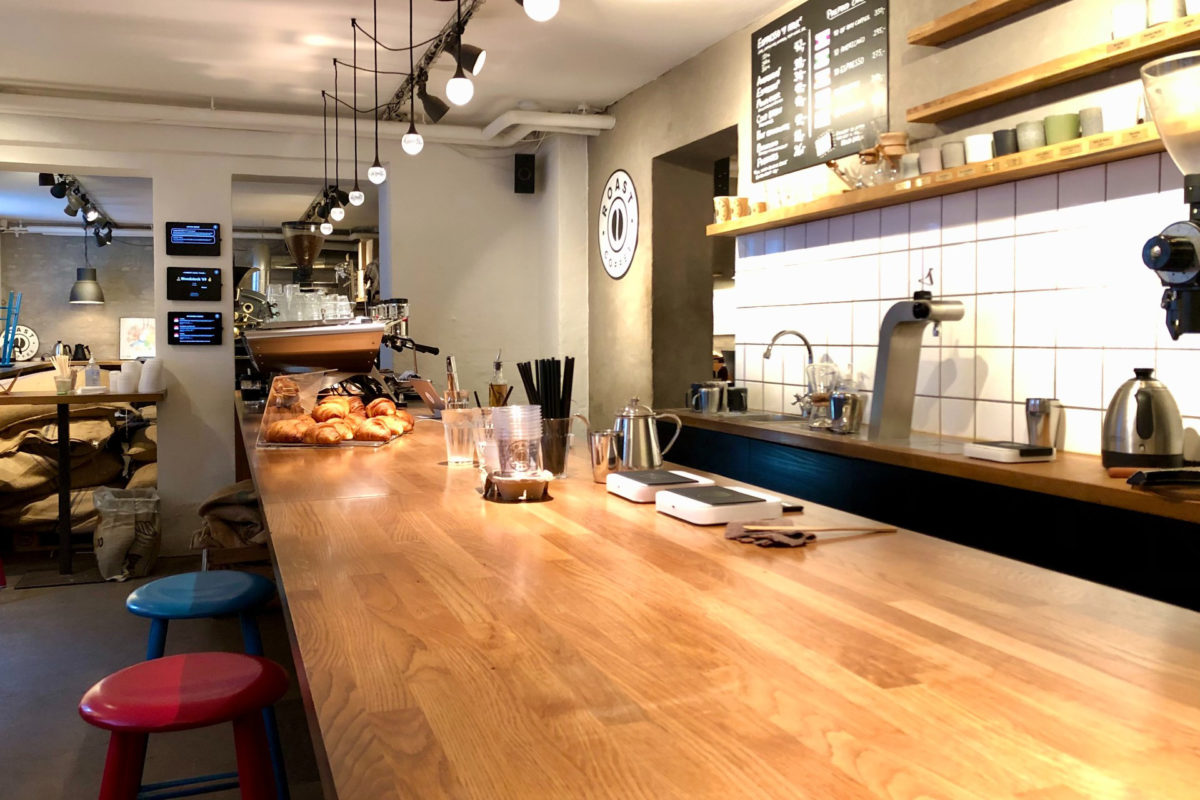
During my visit, which the friendly staff say is a “slow morning,” there’s an almost party atmosphere backed by the energetic 70s/80s playlist. The baristas seem to make a connection with each customer in the steady stream pooling into an uneven line in front of the espresso machine emblazoned with the ROAST logo. Circular bulbs like clear marbles extend on thin black stems from the ceiling, creating a warm contrast from the concrete walls.
Needless to say, it’s not the type of cafe you go to hide. Grab a stool against the long wooden bar—it’s well worth the walk across the Langebro (or “long bridge”).
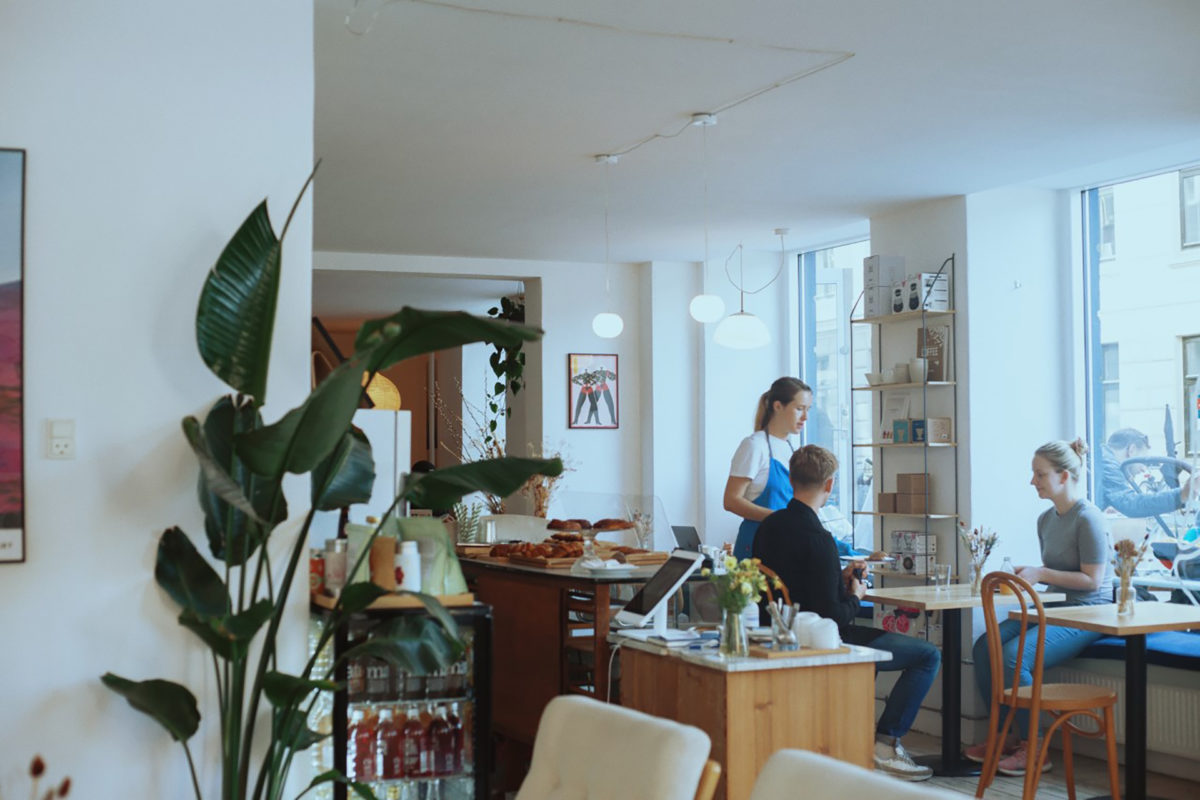
Darcy’s Kaffe
Darcy’s Kaffe started as a specialty coffee cart in 2018, and opened its first, bright corner cafe on Rantzausgade in 2020. Its single-line art logo was designed by Millar’s friend Christina Capper, and the cafe features merch and local art by cafe staff. The atmosphere, with rouge accents, dried flowers, and a mix of IKEA and vintage finds has drawn comparison to Berlin cafes—but the unique appeal only starts there.
At Darcy’s, the scent of coriander wafts through the air, laptops are banned during weekends, and even Mondays bring a righteous buzz. A quick glance at the menu brings up an intriguing question: What’s the difference between the “comfy” versus “exciting” espresso?
“It’s about the origin and the bean, and pricks our customers’ curiosity,” Millar tells me. During my visit, the “exciting” espresso (brewed manually) is a red-honey processed Ethiopia, while the house “comfy” espresso (programmed volumetrically) is single-origin from La Cabra, a Copenhagen-based roaster, both brewed on their La Marzocco Linea PB. You can also opt for a tasting experience to try espresso both ways: first a milk drink, then a single espresso, served in stackable ACME cups. Oat and lactose-free milk are available at no upcharge.
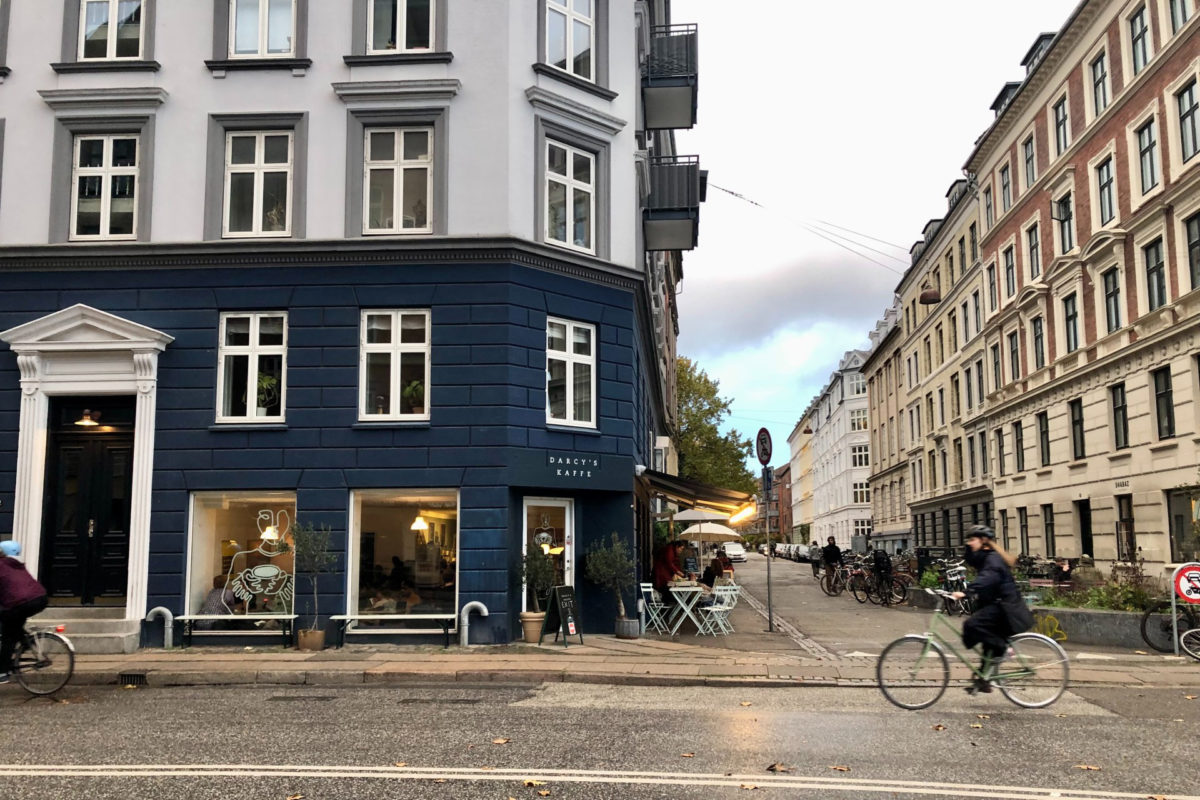
Millar switches up the batch-brew and pour-over offer regularly from local and international roasters in an effort to “bring the best from around, to Copenhagen.” This penchant for novelty extends to food and pastries, made by Head of Kitchen André Kaliff and Head Baker Sylvain Tarpi, formerly of Il Buco and Juno. From the avocado toast with chili jam and homemade ricotta, to the banana bread with miso and sesame seeds, and finally the cinnamon bun with cascara and coffee glaze, everything here is even better than the first impression.
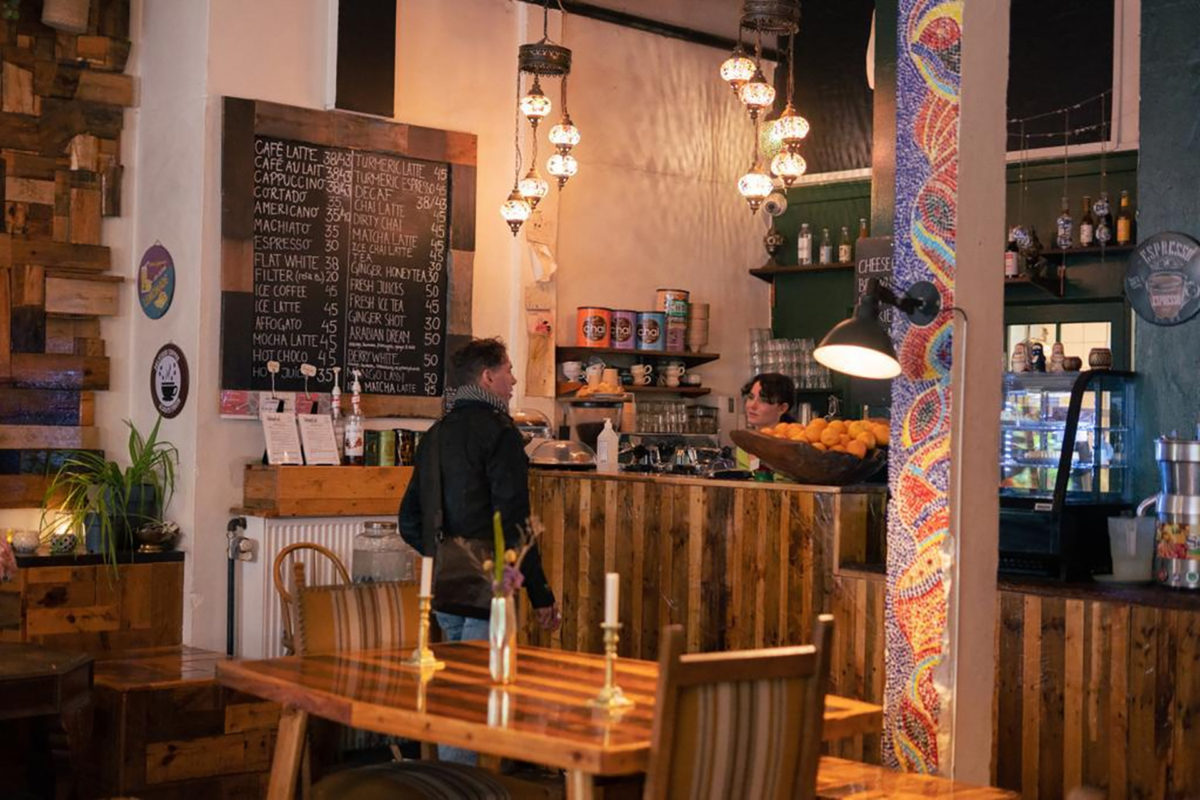
Arabica
Naim Al-Kassab was born and raised in culturally diverse Nørrebro, a quarter of Copenhagen now considered among the most happening in the city. When he founded Arabica in 2011 in Nørrebro’s nuclear center, Al-Kassab tells me, “there was a social element missing.” That seems to have changed: At least three people wave or shake hands with him while I ask him questions over my turmeric latte.
Al-Kassab’s emphasis on the intersection of good service and good community is evident. The shop evokes an Arabian living room, with cozy, dim lighting, an assortment of embroidered chairs and couches, colorful rugs, and mosaic tiles, all illuminated by the mosaic pendant lamps Al-Kassab brought in from Jordan. “I wanted to build a small oasis where I could feel my culture and feel at home,” he says.
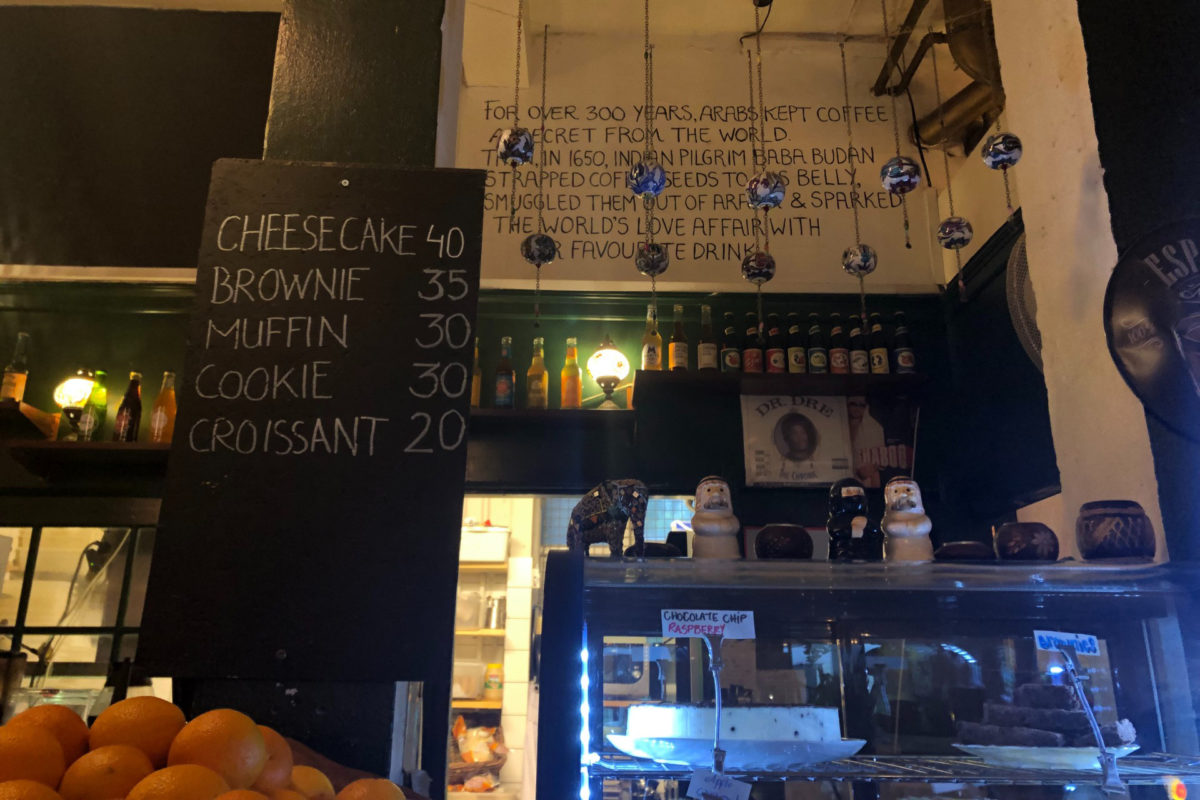
The cafe boasts an extensive menu with excellent homemade smoothies (like my favorite, the Arabian Dream), as well as a vegan/vegetarian-friendly mix of Middle Eastern and Scandi bites like halloumi, labne, baba ganoush, foul, and various cakes. Baristas serve espresso-based drinks on a VBM machine with beans from Morettino, the Palermo-based roastery and first native Sicilian coffee producer. Signage around the shop build awareness of the Arab connection to coffee, local community initiatives, and the Palestinian cause.
“Arabica wouldn’t exist without our customers. They make it unique,” he continues, sharing that the community around the cafe is so tight-knit that some customers, who kept Arabica from closing during the pandemic, have their own keys. “Everyone knows each other.”
Indeed, there’s only one Arabica. Above all, Al-Kassab tells me, he’s happy with the good energy he’s cultivated at the center of his single, spirited operation.
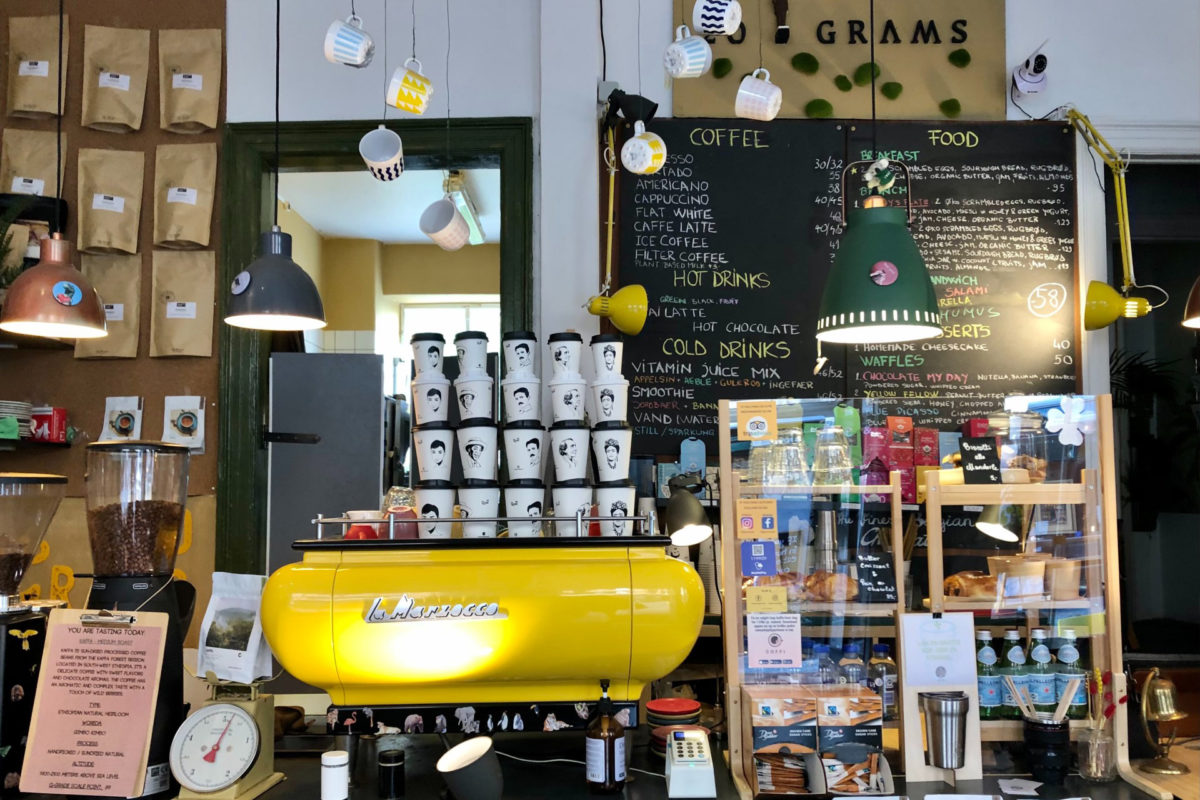
20 Grams
20 Grams is on a quiet cobblestone street just around the corner from the buzzing Nørreport transport hub (and Coffee Collective’s phone booth). A step inside reveals a world of color and whimsy, starting with a La Marzocco FB70, which the team reconditioned and repainted in the cafe’s representative yellow.
Founded in 2018 by husband-wife team Daniel and Claudia Bokor, 20 Grams is the fruit of Daniel’s 13 years of experience helping other people open cafes. “We wanted to create a cozy, second home the way we imagined it,” Daniel writes in an email. They use 20 grams of ground coffee in a double shot of espresso, hence the name.
Customers are a key part of the cafe’s quirky, evolving aesthetic. Just like you never step into the same stream twice, you might never step twice into the same 20 Grams: “After we opened, we asked people to bring in things that represent them in exchange for a cup of coffee and a smile,” Daniel explains, and years later, customers still loan the cafe beloved, sometimes handcrafted items to sit alongside the owners’ family photos.
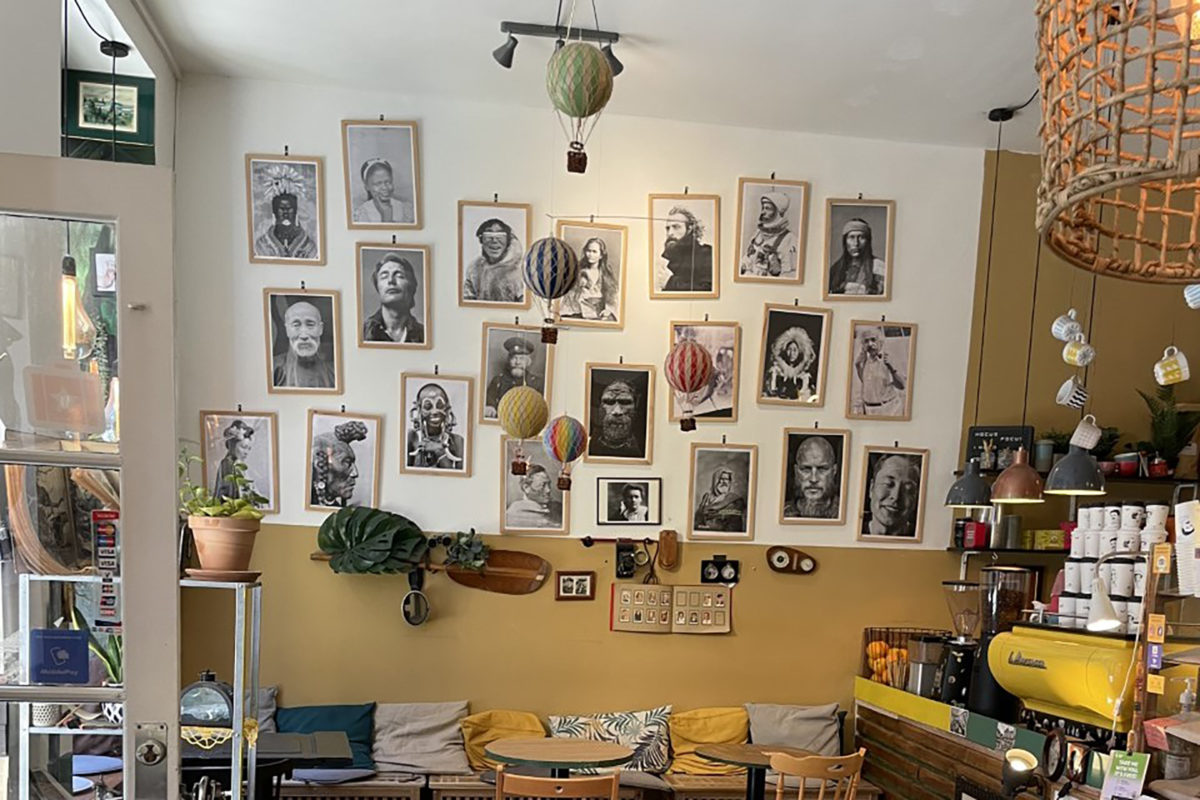
The cafe’s multicultural Portrait Wall embodies the team’s desire to “create a place where everyone is welcomed, regardless of age, gender, occupation, nationality, or race” as well as something “even two strangers can discuss,” Daniel writes.
Conversations about everything from indigenous history to Frida Kahlo’s paintings can take place over 20 Grams’ extensive coffee and food menu; the cafe typically serves single-origin medium roasts, often partnering with Copenhagen-based Impact Roasters, whose Ethiopian and Bosnian-Danish founding team roast direct-trade coffee from Ethiopia. Pro tip: Follow up on what’s billed as “my wife’s mysterious homemade cheesecake.”
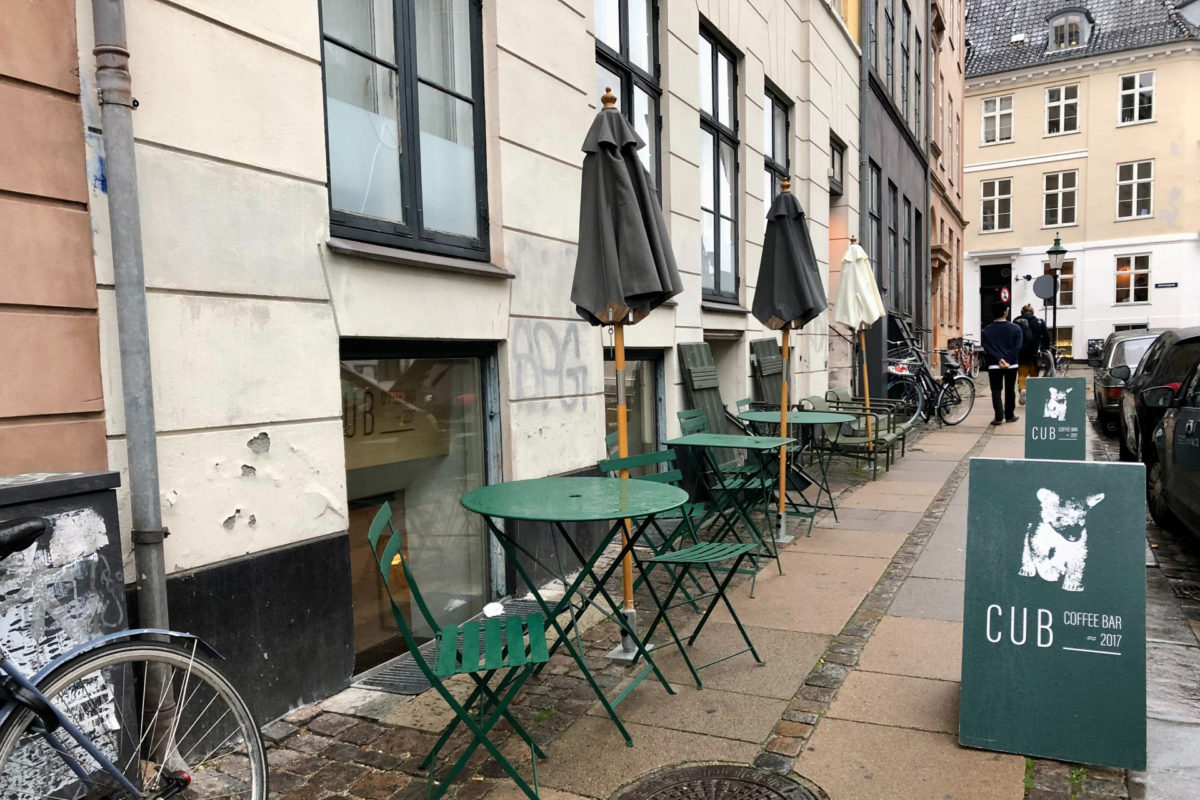
CUB Coffee Bar
Need a break from sightseeing in the center of Copenhagen? Step down into CUB Coffee Bar, founded 2017—the only specialty joint you’ll find so close to Christiansborg Palace and many major museums.
The cafe, hidden off the main street, is marked by its green signs featuring the cafe’s cute bear cub logo that’s also on their cups. Inside, you’ll find a laid-back, unpretentious atmosphere that feels like you’re visiting your friend’s decked-out basement cafe, complete with white and green accents; low, exposed, wooden ceiling beams; game tables; and a model ship—plus lots of cozy nooks with reading lamps and faux-white fur seat covers.
Most importantly, you’ll find a strong emphasis on presentation from coffee to buns. Before taking over from the original founders in mid-2022, owner Hans Kristian Andersen worked at the earlier incarnation of CUB while studying and later sold a bakery. His new venture is off to a good start; the crowd is about 50% regulars, he tells me, and business is busier now than ever.
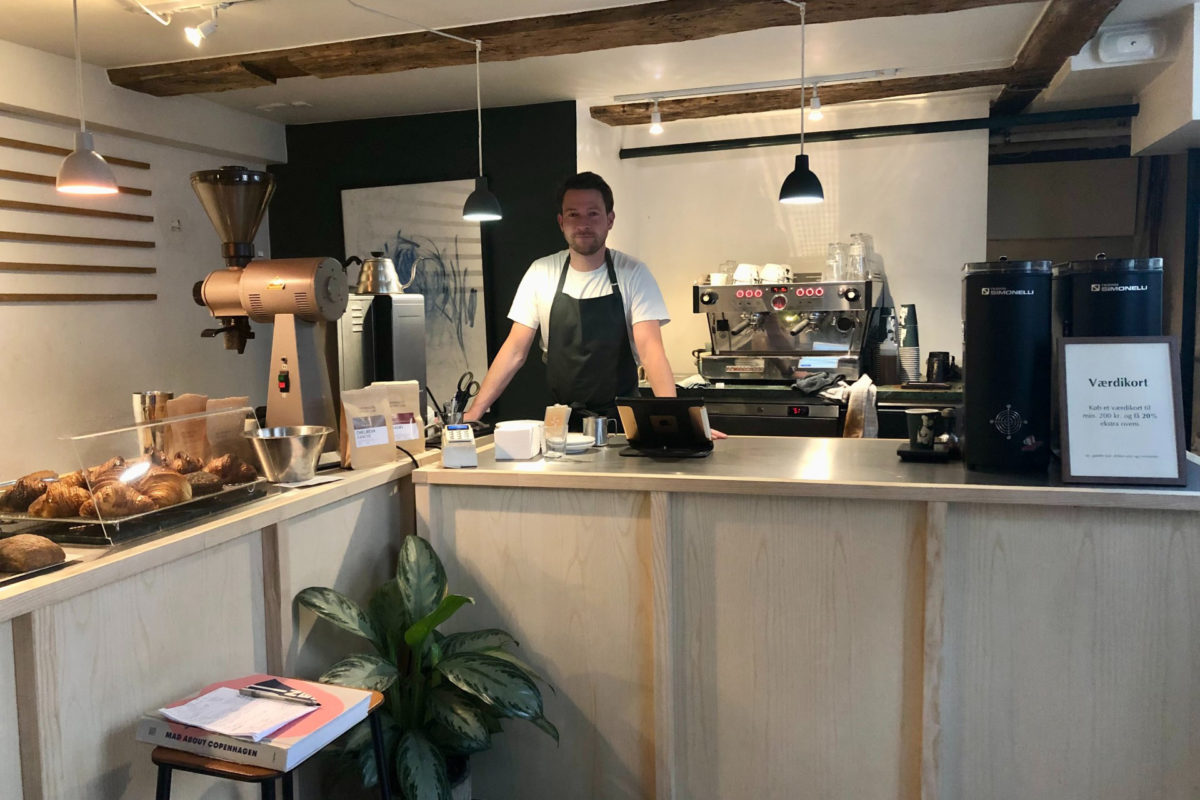
Andersen started by adding breakfast, pastries and croissants he makes himself to the cafe menu. “I like production and making things in big amounts,” he says, and believes that though “everyone asks about the coffee, the buns are just as important.” That said, he sources beans through roaster Copenhagen Coffee Lab, serving Brazil Campo Das Vertentes, sweet with a soft mouthfeel, on espresso and rotating Ethiopian and Kenyan beans on filter.
The innovative culinary spirit is present here in big amounts. For his second year in business, Andersen says, “I’m planning iced lattes that”—believe it or not—“feature cheese as an ingredient.”
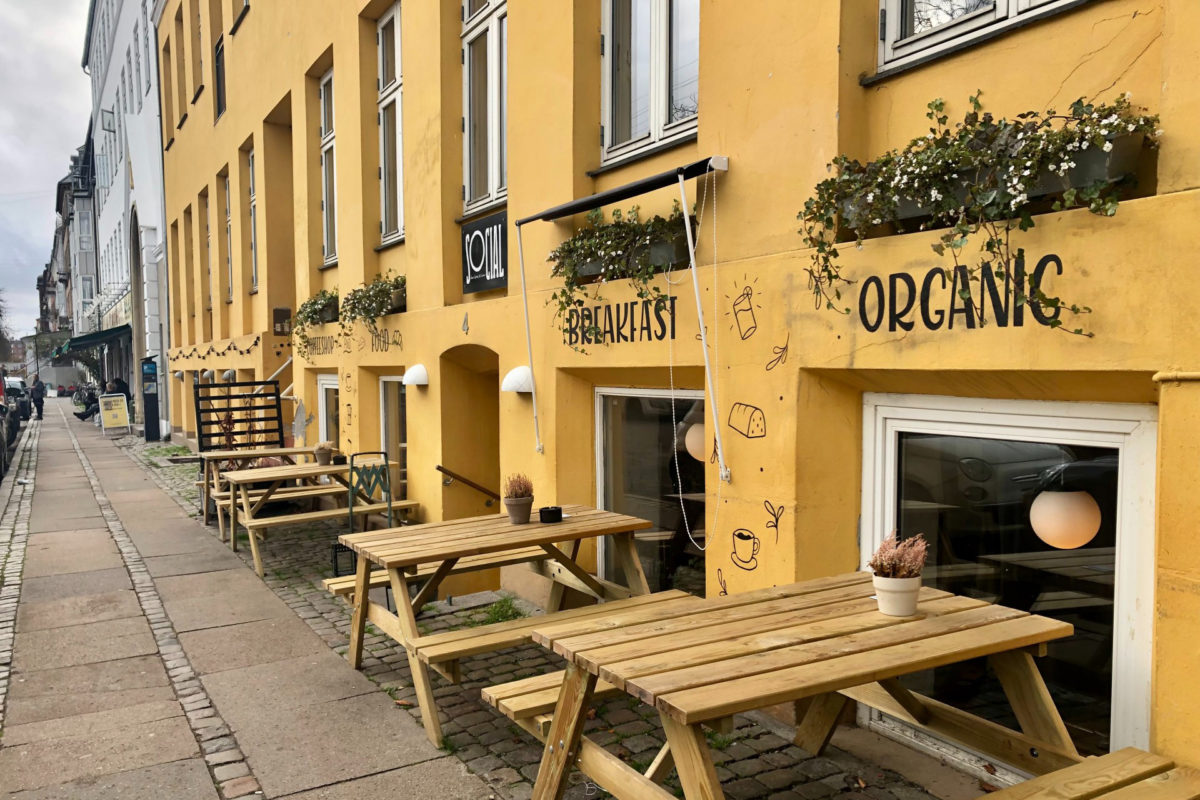
Social
Just across from Dronning Louises Bro (Queen Louise Bridge), you’ll encounter Social’s inviting yellow exterior with picnic tables and a view on the Peblinge Lake. The colorful cafe was founded in 2015 by friends Sebastian Streit Jeppesen, Frederik Nemo Andersen, and Yussuf Yurary Poulsen (a professional football player in the Danish national team and RB Leipzig), who built it from the ground up in their mid-20s.
Social is known for combining healthy food with good coffee. The cafe first gained recognition as the “Best Coffee Shop in Copenhagen” by Danish newspaper Berlingske in 2017 for their breakfast boards—before they became widely popular—and big lunch salads. You’ll also find organic and gluten-free buns and excellent chia pudding made with homemade jam alongside their cheerful, seafoam-blue coffee cups.
The “true backbone of the coffee shop” is Social’s La Marzocco GB5, writes Jeppesen in an email. Though Social doesn’t serve filter coffee, “We take pride in manual espresso brewing, and teach the baristas to properly taste, scale and detail the coffee, every day.” Social rotates espressos, roasted with their friends at fellow Copenhagen cafe Social Brew.
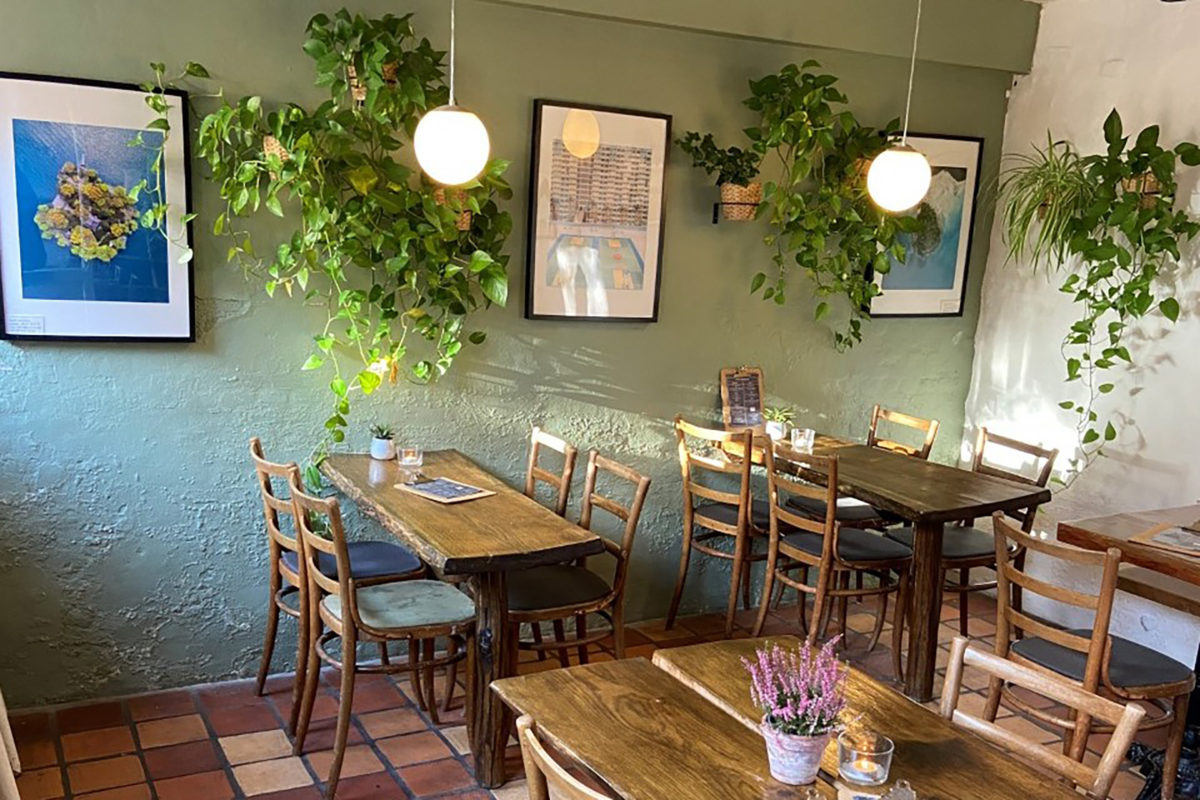
It’s an experience you can enjoy in a wide and inviting space, where birch trunks hold up part of the ceiling and you can cozy up for a chat in varied seating with linen pillows under the dark wood ceiling beams.
Critically, the cafe’s name also refers to the “social” responsibility key to their business. “There’s simply no other way to do it these days,” Jeppesen writes. “With coffee production under pressure all around the world, we need to pay the people working with these beautiful products in a responsible way, too.”
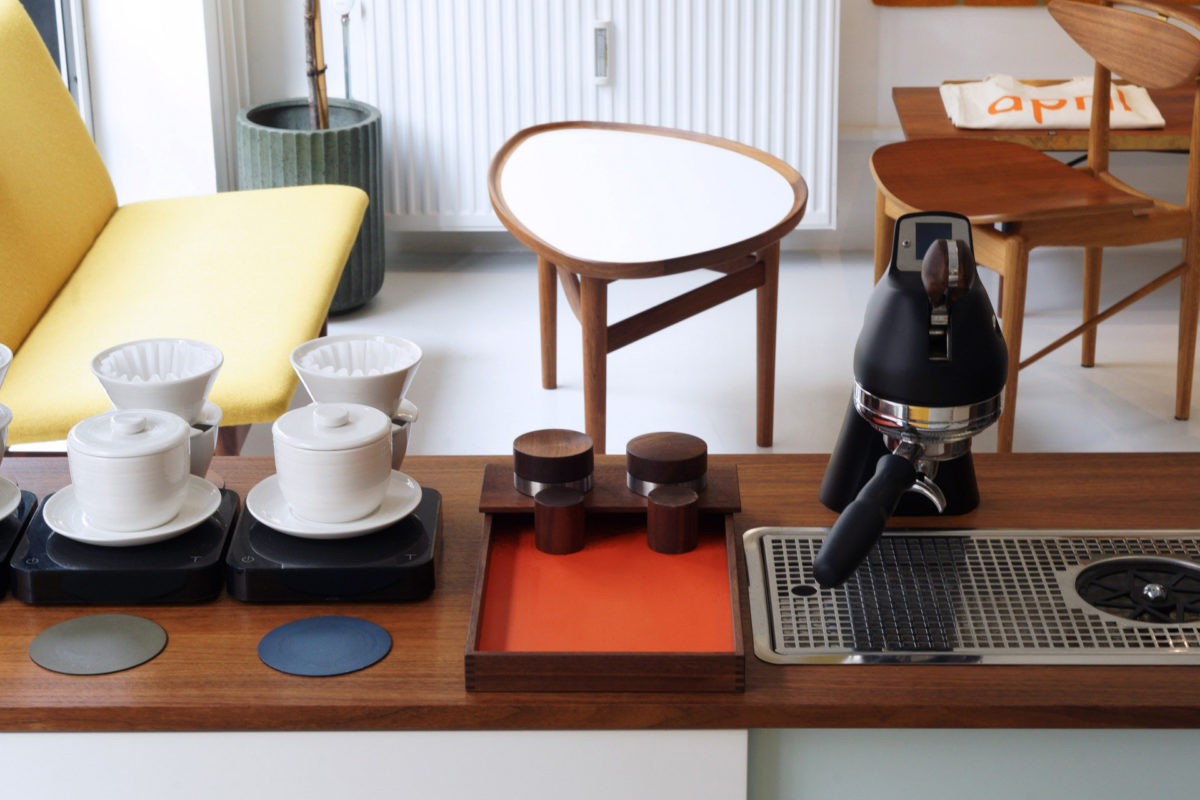
April Store Copenhagen
Patrik Rolf, a Swedish national and 2022 World Barista Championship finalist, founded April in Copenhagen in 2016. After working for other roasters, he wanted “to create a platform where I could express my own perspective on coffee. The name April is a play on seasonality and represents a time of year when I find the most inspiration.”
Rolf and the April team take an “uncompromising approach” to roasting and serving coffee—and The April Store functions as a showroom for the work of the producers. It brims with Danish themes and styles, designed in-house, with furniture by Danish designer Finn Juhl, writes Rolf in an email, “to create a ‘living room’ feeling that gives us the opportunity to put the coffee in focus.”
It’s also set apart by its focus on service, which Rolf feels is declining. “I wanted a place where coffee wasn’t transactional, and where you could relax and forget about the outside world.”
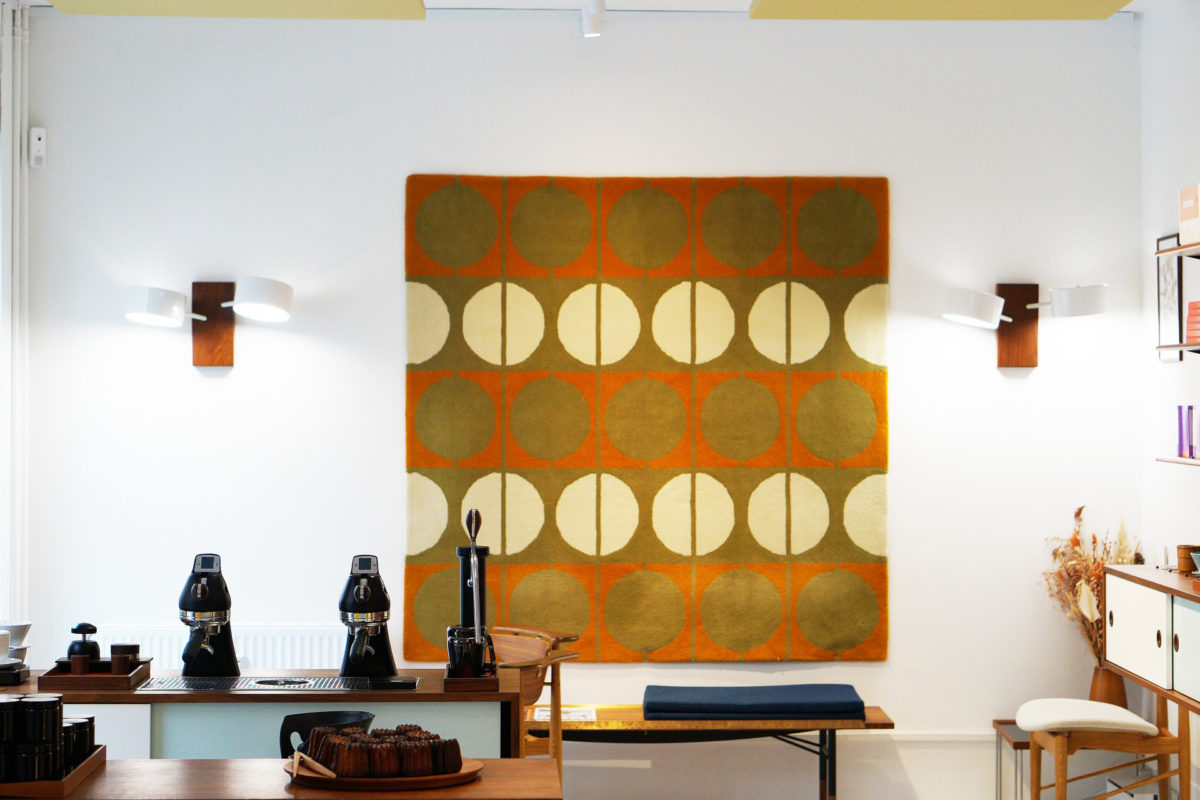
The April Store uses a Modbar to brew espresso and their branded April Brewers for filter, both mainly served black. The team has a “1 Farmer, 1 Roaster, 1 Coffee” philosophy, purchasing single varietal coffees directly from single farms to ensure farm-to-cup quality and traceability. Rolf is especially proud of April’s collaboration with Alejo Castro, manager of the Volcán Azul farm in Costa Rica.
Though April has always set the bar high, Rolf shares that now, “We want to be a part of redefining what the very top of the industry tastes like.” Their brand is continually in bloom: April Store Seoul just opened in November 2022.
Chloé Skye Weiser (@apostropheskye) is a freelance writer based in Denmark. Read more Chloé Skye Weiser for Sprudge.







